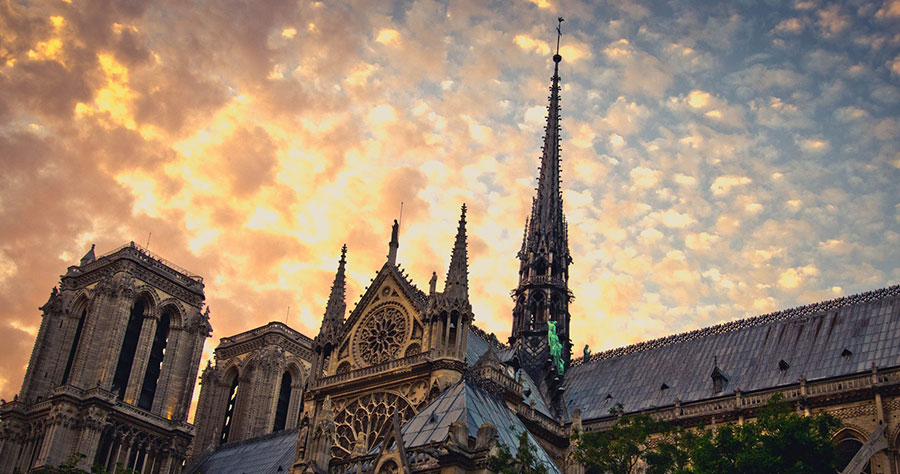That Nothing May Be Lost: Reflections on Catholic Doctrine and Devotion
Author Fr Paul Scalia
Publisher Ignatius Press, 2017
Among the many achievements of late Supreme Court Justice Antonin Scalia must be counted his son, Father Paul Scalia. Many Catholics in America were introduced to him through his father’s televised funeral Mass in 2016. His homily on that occasion was a model for how to successfully interweave Catholic teaching on the “Four Last Things” with well-chosen details of the deceased’s life, rather than offering a eulogy. That homily appears as an appendix in Father Scalia’s new book, That Nothing May Be Lost: Reflections on Catholic Doctrine and Devotion. As he opened his homily:
We are gathered here because of one man. A man known personally to many of us, known only by reputation to even more; a man loved by many, scorned by others; a man known for great controversy, and great compassion. That man, of course, is Jesus of Nazareth.
It is He whom we proclaim: Jesus Christ, Son of the Father, born of the Virgin Mary, crucified, buried, risen, seated at the right hand of the Father. It is because of Him, because of His life, death, and Resurrection, that we do not mourn as those who have no hope, but in confidence commend Antonin Scalia to the mercy of God.
Father Scalia’s book is a collection of brief articles, many originally published in the Arlington Catholic Herald, that are related to aspects of Catholic teaching, living, liturgy, feast days and seasons. They are gathered into nine groups whose titles convey the richness and attractiveness of Catholicism: “The Lord: Knowing and Loving Jesus of Nazareth”; “The Church: Knowing and Loving the Body of Christ”; “Paradoxes of Faith: The Tension and Balance of Catholic Teaching”; “The Sacraments: Christ’s Life Placed Within Us”; “The Virgin Mary: The Beauty and the Power of the Mother of God”; “The Saints: The Mortal Masterpieces of God’s Grace”; “Prayer: In Conversation With God”; “The Life of Grace: Christ Within Us”; and “Feasts: The Pattern and Rhythm of the Christian Life.” In each, Father Scalia clearly expresses what Catholics of our time most need to know or remember to adhere to and celebrate their faith in our common journey to the Father.
A bonus for readers is the array of “names” that introduce the various sections of the book. Among these are Scott Hahn, Helen Alvaré, Mary Ellen Bork and Raymond Arroyo. In addition, Archbishop Charles Chaput of Philadelphia contributes the foreword.
In reviewing a collection that covers aspects of almost every area of Church life, it is difficult to single out specifics without seeming to suggest that that is what the book is about. The introduction identifies the common thread in this way:
Although I could not articulate it twenty five years ago, I desired to bring souls healing, peace, and salvation by teaching the Catholic faith. After twenty years of priesthood, that conviction about the Church’s teaching and the desire to communicate it have not diminished. Indeed, after years of service as a parish priest, they have only grown stronger – because a priest is privileged to see both the great depths of human suffering and the great miracles of divine grace.
The book’s title comes from the account of Christ’s Multiplication of the Loaves and Fish. Afterwards, Christ commanded his apostles to “gather the fragments left over, so that nothing may be lost.” Father Scalia applies this metaphor to the Church, whose “… mission is to hand down the faith whole and entire for the salvation of souls. To neglect one dimension or the other, to cut corners here and there, only puts souls at risk. ‘Heresy’ comes from the Greek haireisthai, ‘to choose’. The heretic chooses one teaching to the exclusion of others. He fails to gather the fragments and allows the truths to be lost.”
The metaphor can also be successfully applied to Father Scalia’s book, which I recommend for Catholics and all those interested in better understanding, in a balanced and full fashion, the faith he so ably professes and teaches.
About the Author: Rev C. John McCloskey III
Rev C. John McCloskey III is a Catholic priest of the Prelature of Opus Dei and member of the Priestly Society of the Holy Cross. He is the former director of the Catholic Information Center of the Archdiocese of Washington. Website: www.frmccloskey.com.

